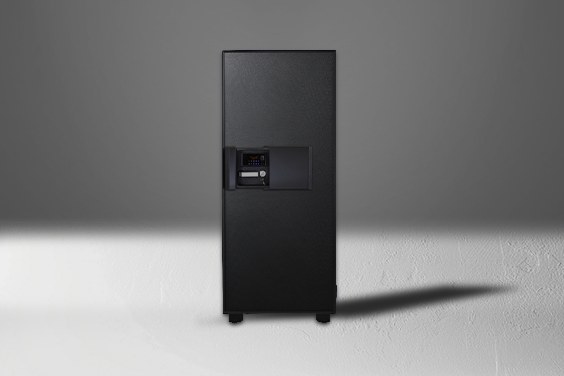Are Fireproof Safes 100% Fireproof?
You’ve seen it in ads — “Protect your valuables with a fireproof safe!” But have you ever stopped to wonder, are fireproof safes really safe?
Many people assume that once they buy a fireproof safe, their documents and jewelry are untouchable. Unfortunately, that’s not always true. Not every safe offers the same level of fire resistance.
In this guide, we’ll uncover how fireproof safes work, what they actually protect, and what you should look for before buying one.
Looking for trusted fireproof safes in the UAE? Explore certified models on BuddyUAE

Why Fireproof Safes Matter
A fire can destroy everything in minutes. Important documents, cash, passports — gone forever. That’s why fireproof safes are designed to resist high temperatures and keep the inside cool enough so your valuables don’t burn.
Here’s why they matter:
- They delay heat transfer using fire-resistant insulation.
- They maintain internal temperatures safe for paper, digital files, and valuables.
- They buy you time — the fire might rage, but your valuables remain protected until it’s out.
But here’s the catch: “fireproof” doesn’t mean “fire-immune.” Let’s dig deeper.
How Fireproof Safes Actually Work
Inside every fireproof safe is a special insulation material — often perlite, gypsum, or concrete composite — that absorbs heat and moisture during a fire.
When exposed to flames, these materials release steam to keep the safe’s internal temperature below the ignition point of paper (around 233°C).
However, every safe has a time limit.
- Some protect for 30 minutes,
- Others for 1 hour,
- High-end ones for 2 hours or more.
After that, the internal temperature can rise — and that’s when damage begins.
Are Fireproof Safes 100% Fireproof?
No safe is completely fireproof. Instead, they’re fire-resistant for a specific time and temperature.
Here’s the truth:
- A UL Class 350 safe keeps paper below 177°C for a stated duration (usually 30–120 minutes).
- Digital safes (Class 150 or 125) protect USBs, hard drives, and CDs at even lower temps.
- After the rated time, heat eventually seeps in.
So yes, a fireproof safe is safe — but only within its rated limits.
If your house or office fire burns for hours beyond that, the safe’s protection weakens.
Even a top-rated fireproof safe can fail if not used or placed correctly. Here are five factors that matter most:
- Duration of Fire
A 30-minute safe won’t survive a 2-hour blaze. Choose a rating based on your risk level.
- Fire Temperature
Residential fires average around 600°C–900°C, but industrial fires can exceed 1,000°C.
- Safe Location
Install it on the ground floor or basement — upper floors heat up faster.
- Water Damage
Firefighters’ hoses can flood the area. Always pick a fireproof + waterproof model.
- Build Quality and Seal
Weak door seals or cheap insulation can let in heat or smoke early. Always go for ETL-verified or UL-certified models.
How to Choose a Reliable Fireproof Safe
If you’re planning to buy one, here’s what to look for:
- Check Certifications – UL or ETL fire-resistance tests.
- Choose the Right Rating – At least 1-hour protection is ideal.
- Pick the Right Lock Type – Digital or biometric locks for quick, secure access.
- Look for Dual Protection – Fire and water resistance combined.
- Buy from a Trusted Brand – Honeywell, SentrySafe, Godrej, Yale, or local UAE-certified brands.
Maintenance Tips to Keep Your Safe Reliable
Even the best fireproof safe needs occasional care.
- Check the rubber gasket for cracks every 6 months.
- Replace keypad batteries once a year.
- Avoid overloading to maintain sealing performance.
- Keep it dry and use silica gel packs inside.
Recheck bolts and hinges periodically.
So, Are Fireproof Safes Really Safe?
Yes — fireproof safes are safe, but only when:
- You buy one that’s UL/ETL certified,
- You choose the right rating for your needs,
- And you install and maintain it properly.
If you treat it as a fire delay system, not an indestructible vault, it’ll protect your valuables exactly as designed.
Remember: A fireproof safe buys you time and peace of mind, not total immunity from disaster.